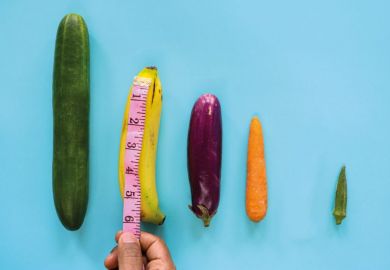More than a fifth of research is going completely uncited in half of the countries in the G20 group of nations, a new report suggests.
In Russia and Indonesia, more than a third of research produced domestically – without international collaboration – fails to gain a citation.
The figures were revealed in the Annual G20 Scorecard report from Institute for Scientific Information.
It shows that Russia has the highest level of total research output going uncited at about 30 per cent of papers indexed over a 10-year period in the Web of Science bibliometric database.
Turkey has a total uncited rate of about 25 per cent, while eight other countries – South Korea, South Africa, Saudi Arabia, Mexico, Indonesia, India, China, Brazil – lie between 20 per cent and a quarter.
In Indonesia, the amount of domestic research going uncited is more than 40 per cent, although a higher citation rate for its international collaborations manages to pull its overall figure down.
Jonathan Adams, director of the ISI and co-author of the scorecard, said part of the problem for Russia was that the Russian Academy of Sciences “has insisted on publications in Russian, which makes their material less accessible”.
But he also noted that the Russian science budget had been “starved” of investment, with the country’s 1.1 per cent spending on research and development as a share of gross domestic product being “very low”, and much of that going on research in industries like oil and gas, not academia.
For the UK, Professor Adams noted that its level of uncited research had fallen to under 15 per cent compared with a similar analysis about 12 years ago that found 22 per cent of papers from a 10-year period going uncited.
“This [change] is possibly driven by research assessment and greater consciousness of citation patterns, but I believe it is also because greater selectivity means that work that is unlikely to have impact is rarely funded and so less often reaches publication,” he said.
However, he noted that other developed research nations like France, Germany, Australia and the US all now had an uncited rate of around 15 per cent “so maybe that is the ‘new norm’”.
Elsewhere, the report from the ISI – part of Clarivate Analytics, which owns Web of Science – provides detailed information on the research performance of different G20 countries in recent years.
It reveals how research productivity – the amount of papers being produced per researcher – has been climbing in some G20 countries, most notably Australia and Mexico.
However, in some other nations like France, Germany and South Korea, research productivity appears to have stalled and in Turkey it has noticeably fallen over the past decade to below the G20 average.
The scorecard also carries statistics on gender balance among researchers in the G20 countries, with only 16 per cent of the researcher population in Japan being female. This contrasts with the UK, where the proportion is nearly 40 per cent, and South Africa, where it is 45 per cent.
Find out more about THE DataPoints
THE DataPoints is designed with the forward-looking and growth-minded institution in view
后记
Print headline: Russia and Indonesia lacking in citations




